The planning system is still overlapping and fragmented.
Contributing opinions to the Draft Law on Planning (amended), the majority of delegates from the National Assembly delegation of Bac Ninh province and the National Assembly delegation of Ca Mau province emphasized that the current planning system is still complicated, fragmented and lacks connectivity.
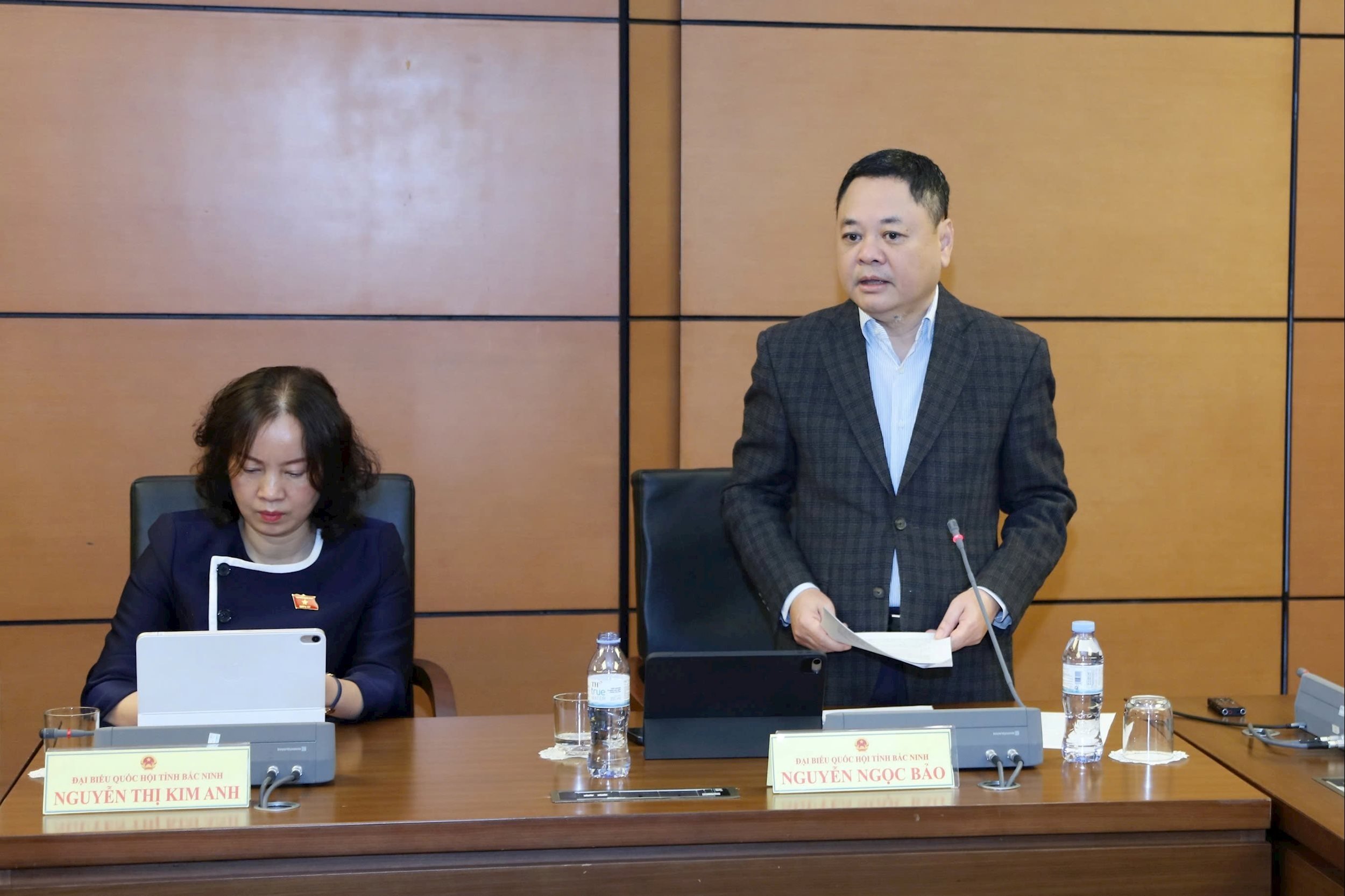
National Assembly Delegate Nguyen Ngoc Bao (Bac Ninh) speaks
National Assembly Deputy Nguyen Ngoc Bao (Bac Ninh) said that there are currently more than 68 laws and legal documents related to planning, making implementation cumbersome and inconsistent.
“The Law on Planning was created with the goal of unifying all types of planning, but then a series of sectoral and specialized technical planning appeared. The result is overlap, contradiction and difficulty in implementation,” emphasized delegate Nguyen Ngoc Bao.
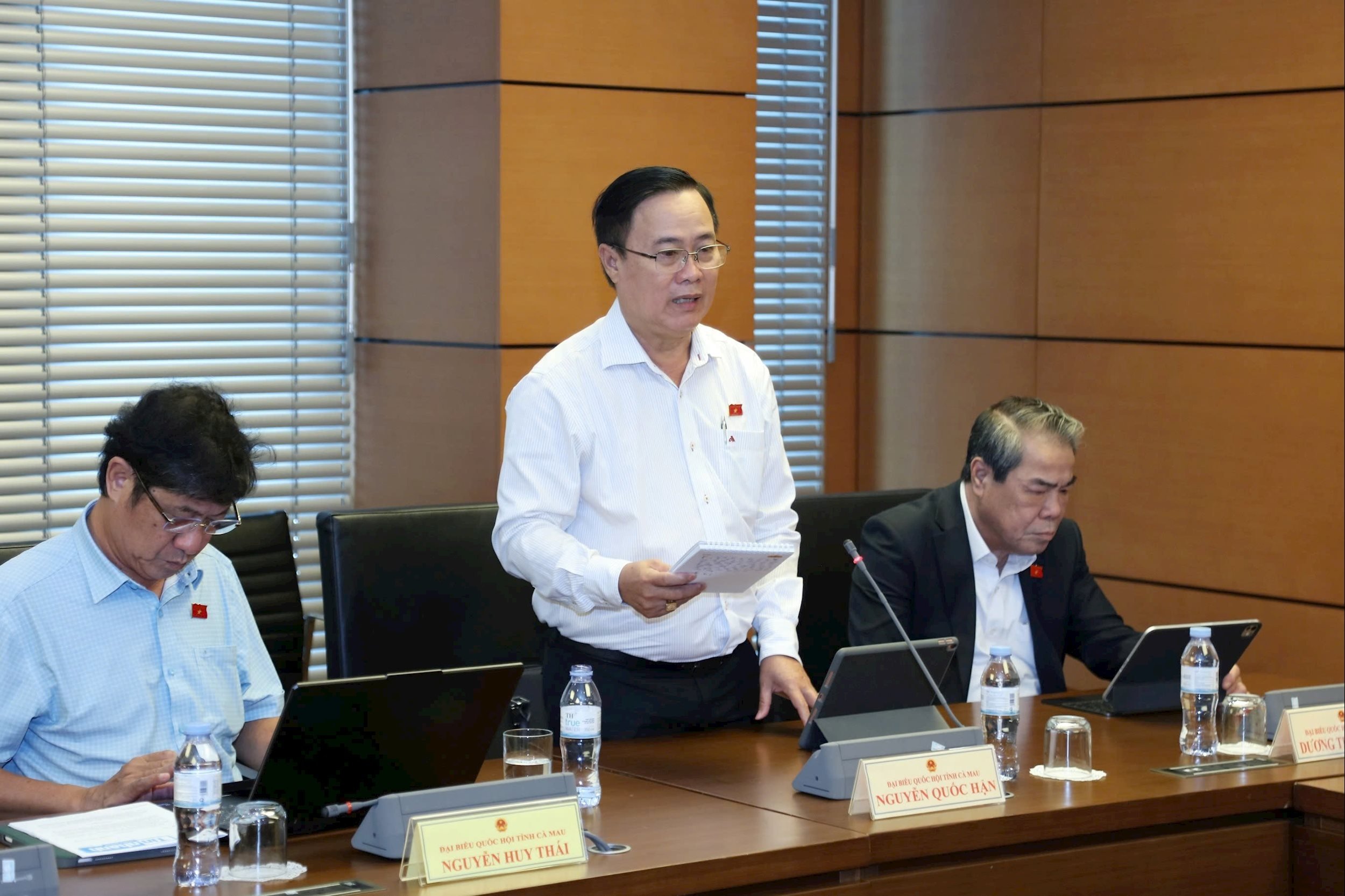
National Assembly Delegate Nguyen Quoc Han ( Ca Mau ) speaks
Agreeing with the above viewpoint, National Assembly Deputy Nguyen Quoc Han (Ca Mau) suggested that the entire planning system should be merged into the Law on National Spatial Planning, in which urban and rural planning should only be a separate chapter.
“If many separate laws are maintained, a locality will be affected by two or even three different laws. This situation not only causes confusion for the locality but also slows down the progress of public investment projects and infrastructure development,” the delegate analyzed.
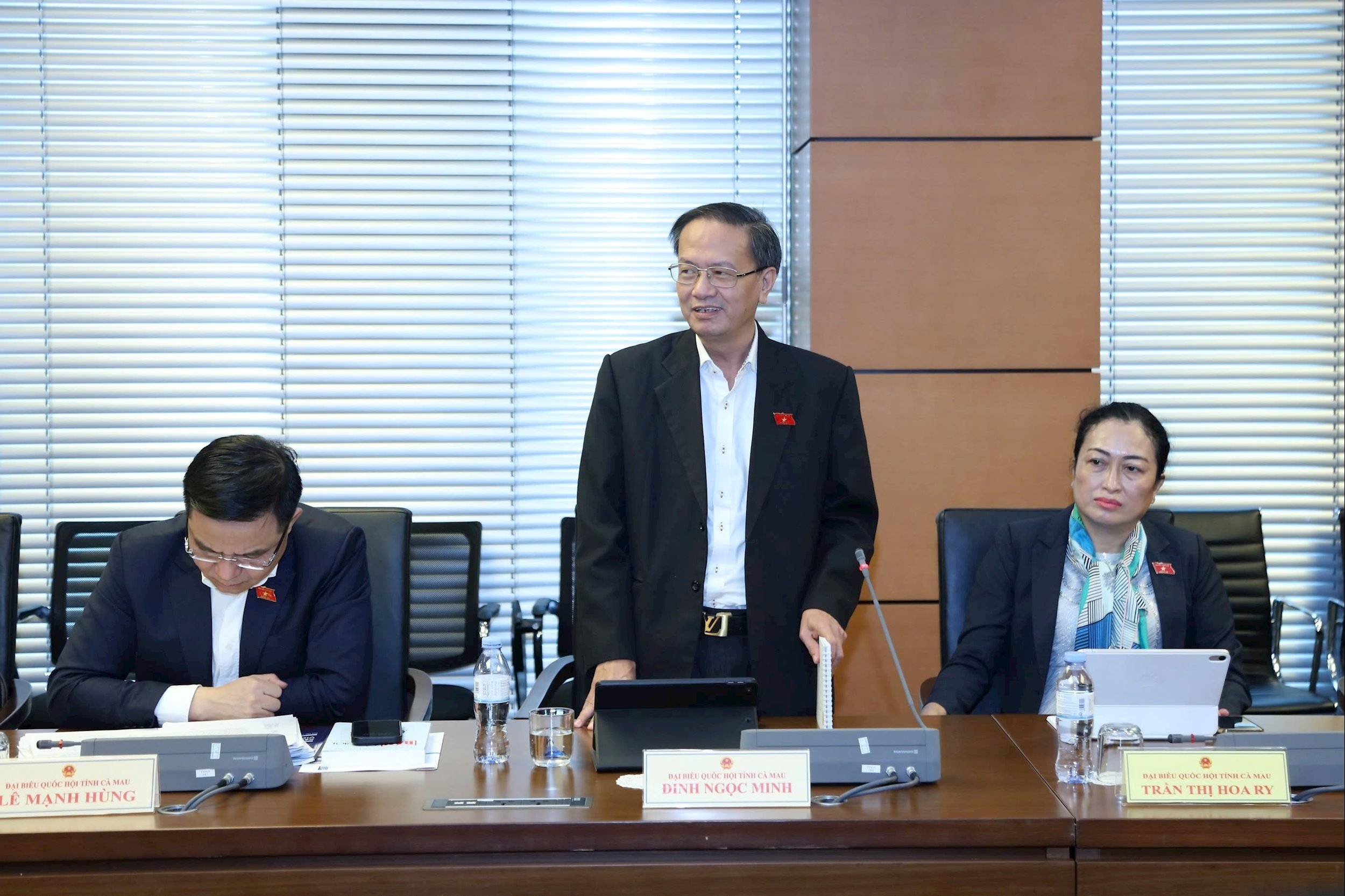
National Assembly Deputy Nguyen Ngoc Minh (speech) speech
From a practical perspective, delegate Dinh Ngoc Minh (Ca Mau) said that the number of current plans is still too large, overlapping and lacking connectivity. According to the delegate, it is necessary to shorten the levels and integrate similar types of plans, especially in transportation, to increase regional connectivity and reduce logistics costs....
There is a mechanism to handle cases where conflicts are discovered during planning.
Regarding the provisions in Article 6 of the draft law on handling conflicts between plans, National Assembly Delegate Do Thi Viet Ha (Bac Ninh) said that this provision is not specific and does not clearly distinguish situations when establishing, reviewing or implementing investment projects; there are no corresponding provisions for cases where lower-level plans are approved in advance according to the decision of competent authorities or in urgent, sudden or urgent cases but there are conflicts with higher-level plans...
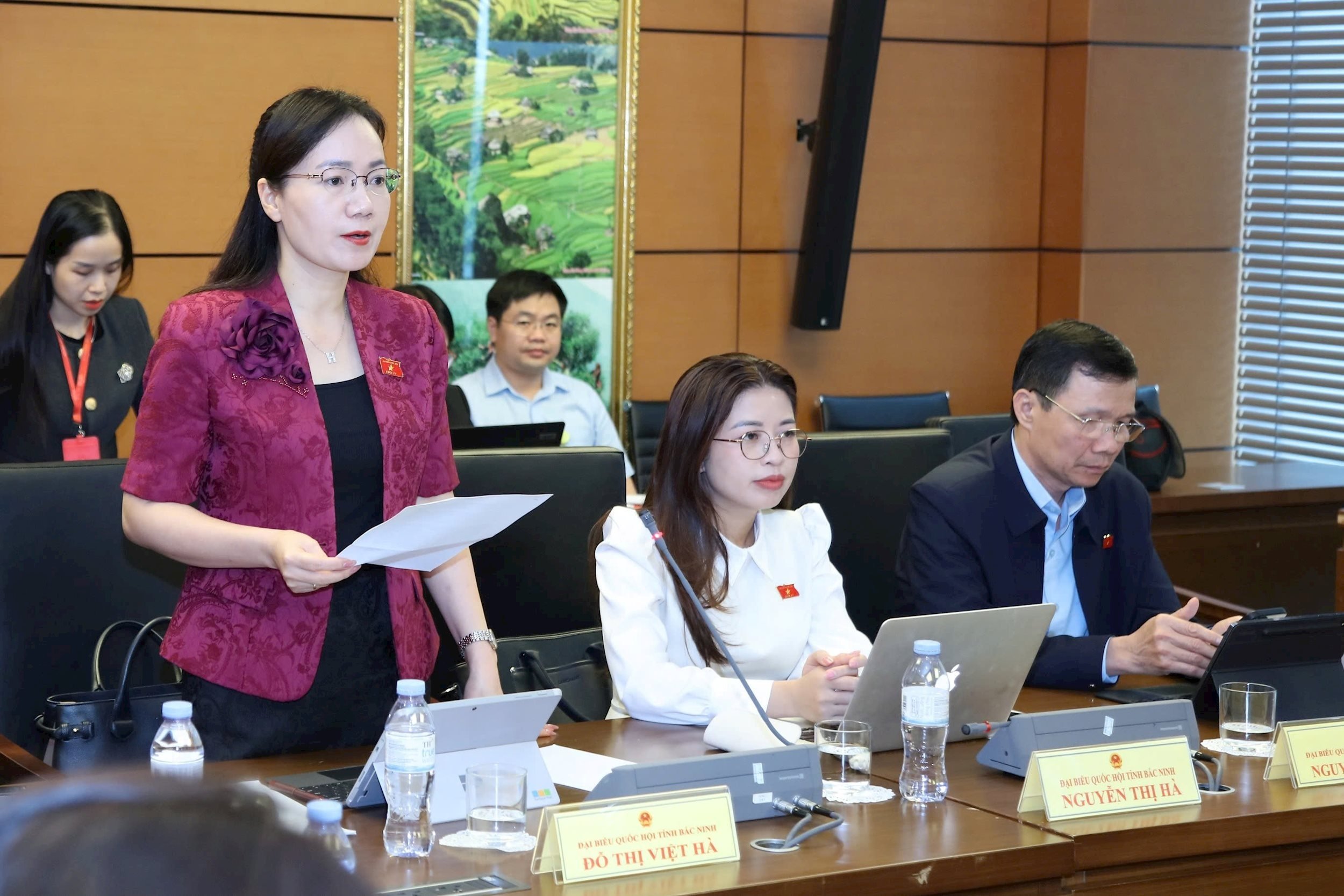
National Assembly Delegate Do Thi Viet Ha (Bac Ninh) speaks
The delegate suggested continuing to review and perfect the provisions in Article 6 on the basis of clarifying the above issues, ensuring consistency between the provisions in the draft Law, having a separate handling mechanism for cases where conflicts are discovered when making related plans and for cases where conflicts are discovered when assessing the implementation of the suitability of investment projects with plans; the handling mechanism must ensure consistency with the nature of interactions between plans.
At the same time, the study clearly stipulates two cases: in which cases the competent authority approving the planning can decide that the planning is used to assess the project's conformity with the planning, the content of the decision of the competent authority approving the planning is updated and reflected in the planning instead of performing the normal review and adjustment process; in which cases it is necessary to review and adjust the planning; ensure feasibility, reasonableness, and remove difficulties and obstacles, but at the same time, there must be strict control regulations to ensure that the requirements and principles in the planning are maintained, avoiding arbitrariness, abuse, and affecting the legitimate rights and interests of the State, people, and businesses...

Delegates participating in the discussion at Group 8
Regarding Article 18 on the basis for planning, delegate Do Thi Viet Ha emphasized the need to clarify the mechanism for applying international treaties, ensuring consistency with the Law on Promulgation of Legal Documents and the Law on International Treaties. At the same time, the delegate recommended removing from the planning list technical activities such as preservation, restoration, and rehabilitation of relics or archaeology, because "this is not spatial planning but a professional activity, if retained, it will distort the nature of planning".
Delegate real power and increase responsibility to localities
Regarding the draft Law on Urban and Rural Planning (amended), delegates at Group 8 also highly agreed on the necessity of amendments to overcome shortcomings in planning work, improve the quality of living space, strengthen decentralization and link planning with the goals of sustainable development and climate change adaptation.
Delegates said: “A good city is a place where people can live healthy, green and safe lives. Planning cannot only be beautiful on paper but must be sustainable in life .”

National Assembly Deputy Tran Quoc To (Bac Ninh) speaks
National Assembly Deputy Tran Quoc To (Bac Ninh) emphasized: The draft Law has mentioned quite completely the institutions, policies, and laws, ensuring unity, synchronization, and conformity with the current 2-level local government model. At the same time, it ensures decentralization, decentralization, simplification of administrative procedures, improvement of the investment and business environment, development of the private economy , development of science, innovation, and creativity...
According to the delegate, it is necessary to enhance the spirit of decentralization but at the same time, it is necessary to give more power to localities. This will help make planning closer to reality, shorten appraisal time and increase initiative.
“Decentralization is not just about delegating power, but must also come with responsibility and implementation capacity. The level that makes the plan must be responsible to the people and the law for the quality of that plan,” said National Assembly Deputy Tran Quoc To.

View of the discussion session
According to delegate Tran Quoc To, it is necessary to solve the planning problem in a long-term direction, renewing thinking in planning. Planning must start from a unified whole, then move to zoning.
The decentralization and empowerment viewpoint received the approval of many delegates. Delegates said that clear regulations between the authority of the provincial, district and commune levels will help reduce the situation of “asking and giving”, increase transparency, and at the same time create a more favorable investment environment.

Delegates participating in the discussion
National Assembly member Dinh Ngoc Minh (Ca Mau) and National Assembly member Leo Thi Lich (Bac Ninh) both said that current urban planning has not met the requirements of rapid and sustainable development, which is reflected in pressing issues such as traffic congestion, flooding, pollution and lack of green space.
Delegate Dinh Ngoc Minh suggested that the Law should focus on solving core urban issues and should not "embrace" rural planning because this field has been regulated by many other specialized laws.
Delegate Leo Thi Lich proposed adding regulations on green space planning and climate change adaptation, considering this a mandatory element in all planning projects.
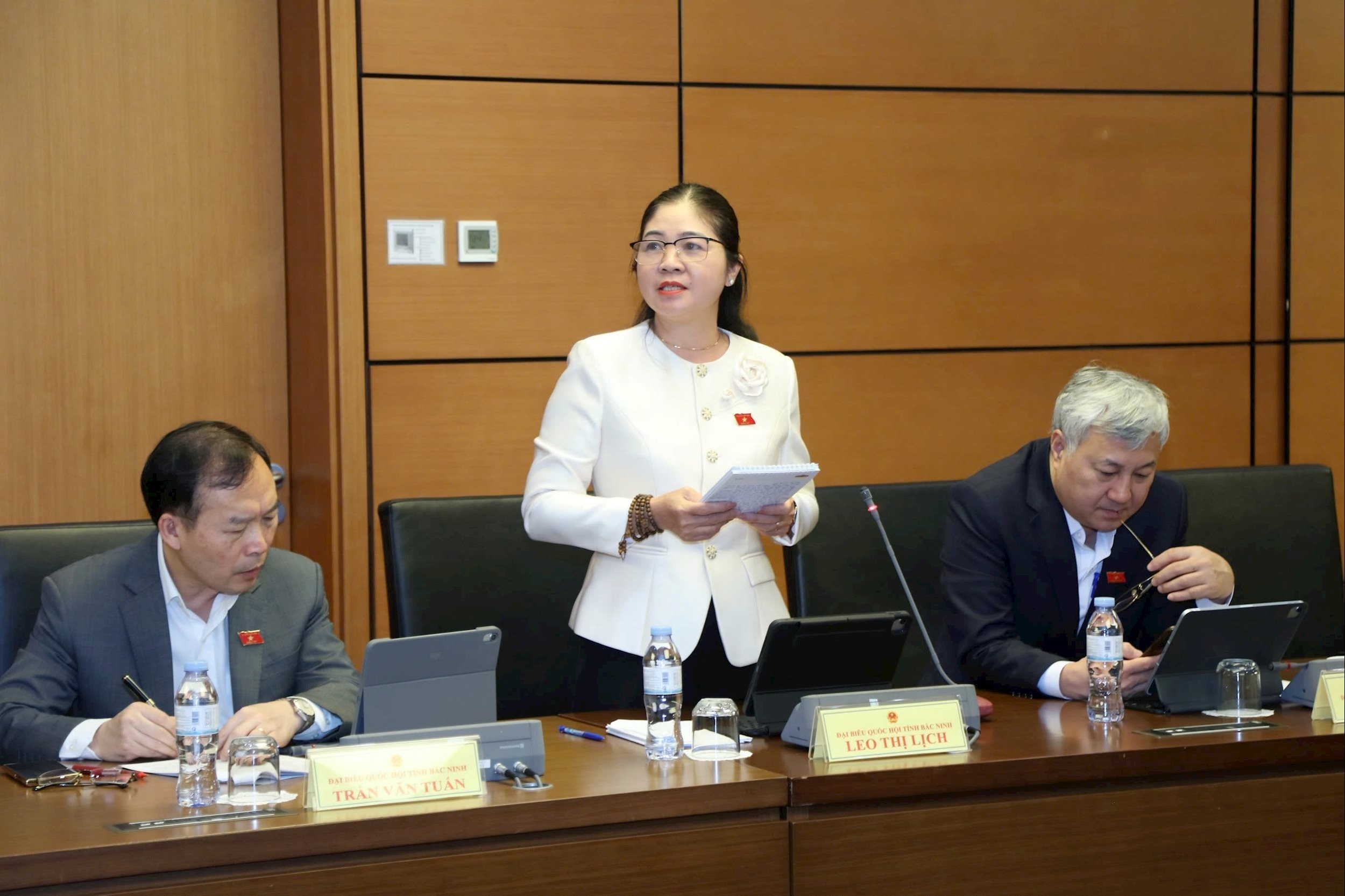
National Assembly Delegate Leo Thi Lich (Bac Ninh) speaks
The delegate cited examples of many urban areas where sidewalks are paved and plants are dying because their breathing space is blocked. Meanwhile, advanced urban areas always plan green trees and natural drainage corridors in sync with traffic, both reducing flooding and improving the environment.
According to delegates, urban planning must have a long-term vision, "at least 20-30 years, and cannot be adjusted every 3-5 years."
Source: https://daibieunhandan.vn/huong-toi-khong-gian-phat-trien-ben-vung-than-thien-moi-truong-10394852.html




![[Photo] Da Nang: Hundreds of people join hands to clean up a vital tourist route after storm No. 13](https://vphoto.vietnam.vn/thumb/1200x675/vietnam/resource/IMAGE/2025/11/07/1762491638903_image-3-1353-jpg.webp)





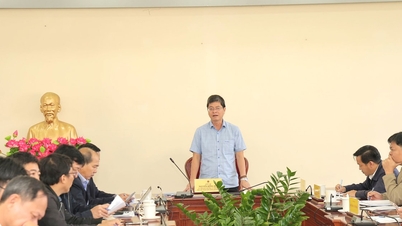

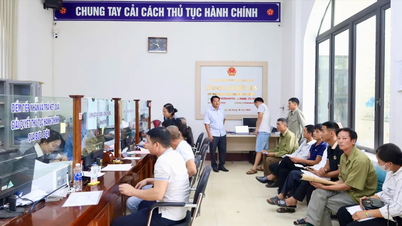



















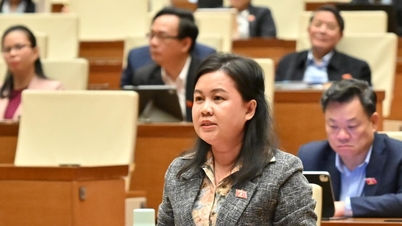






















































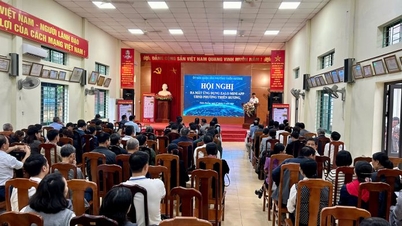





















Comment (0)